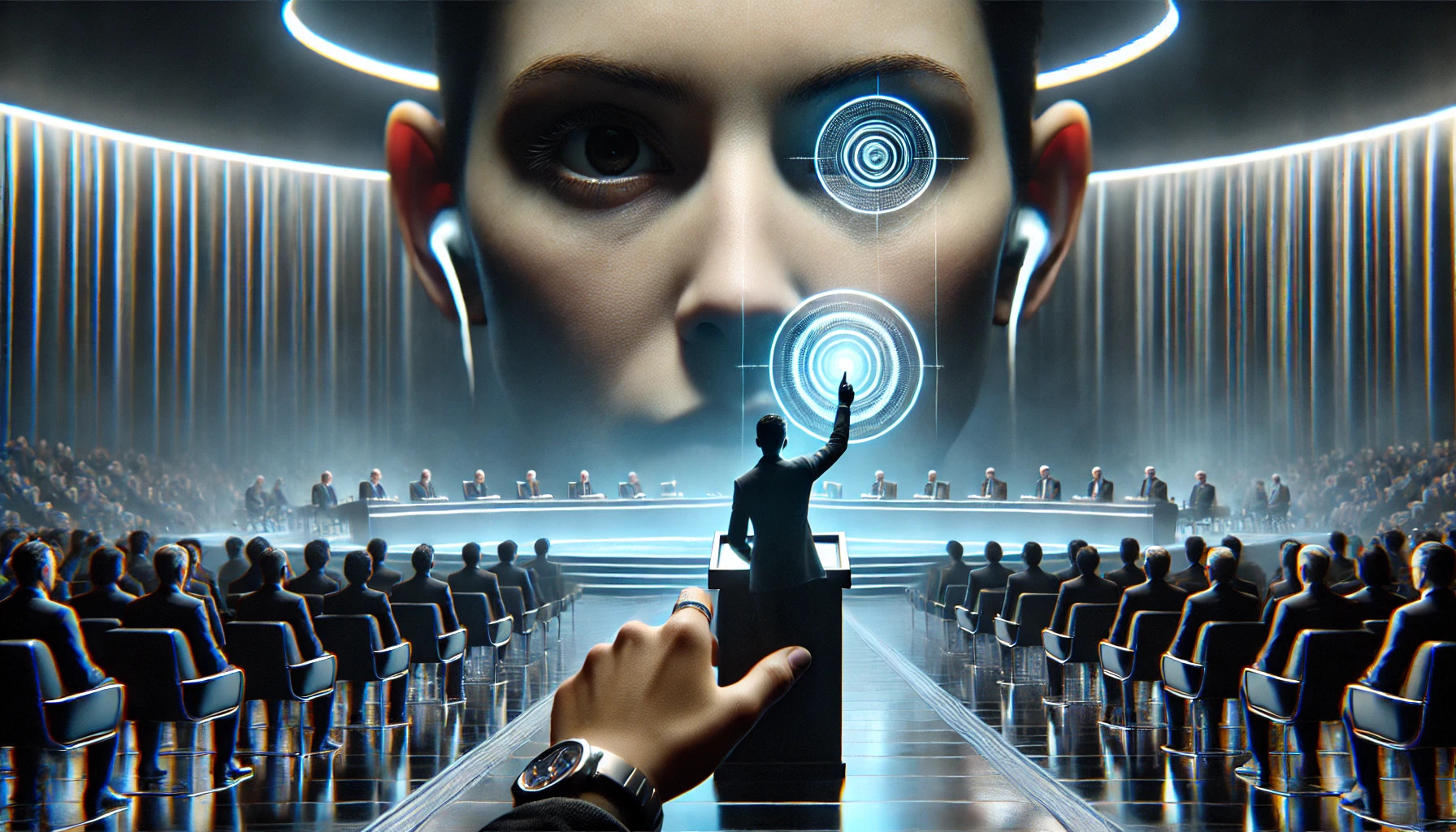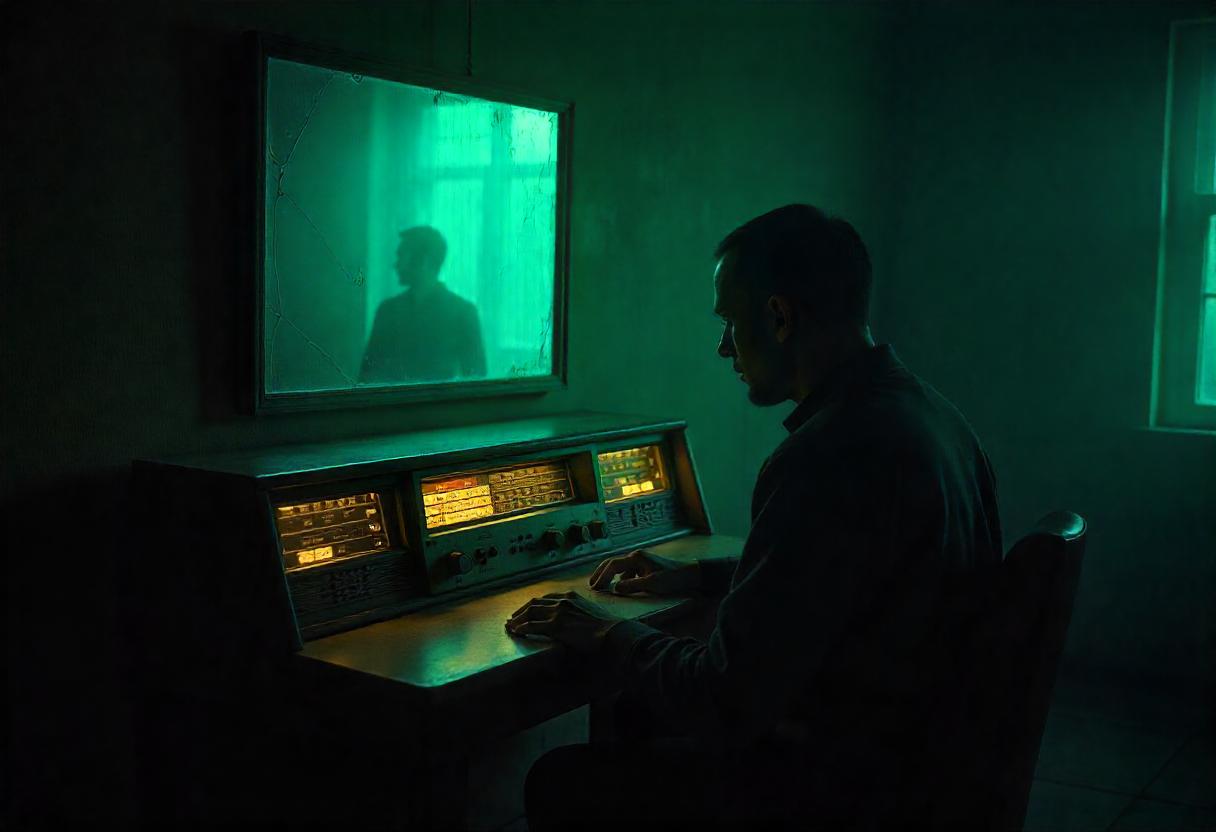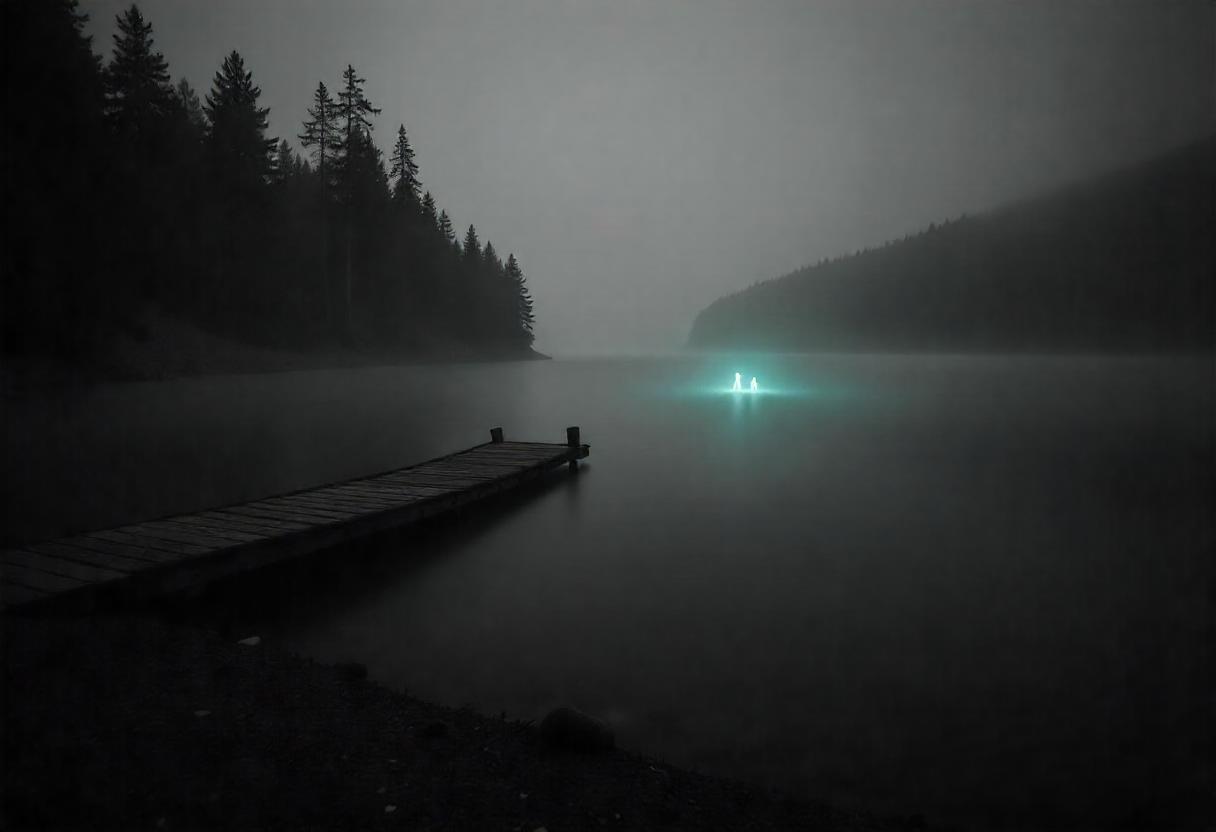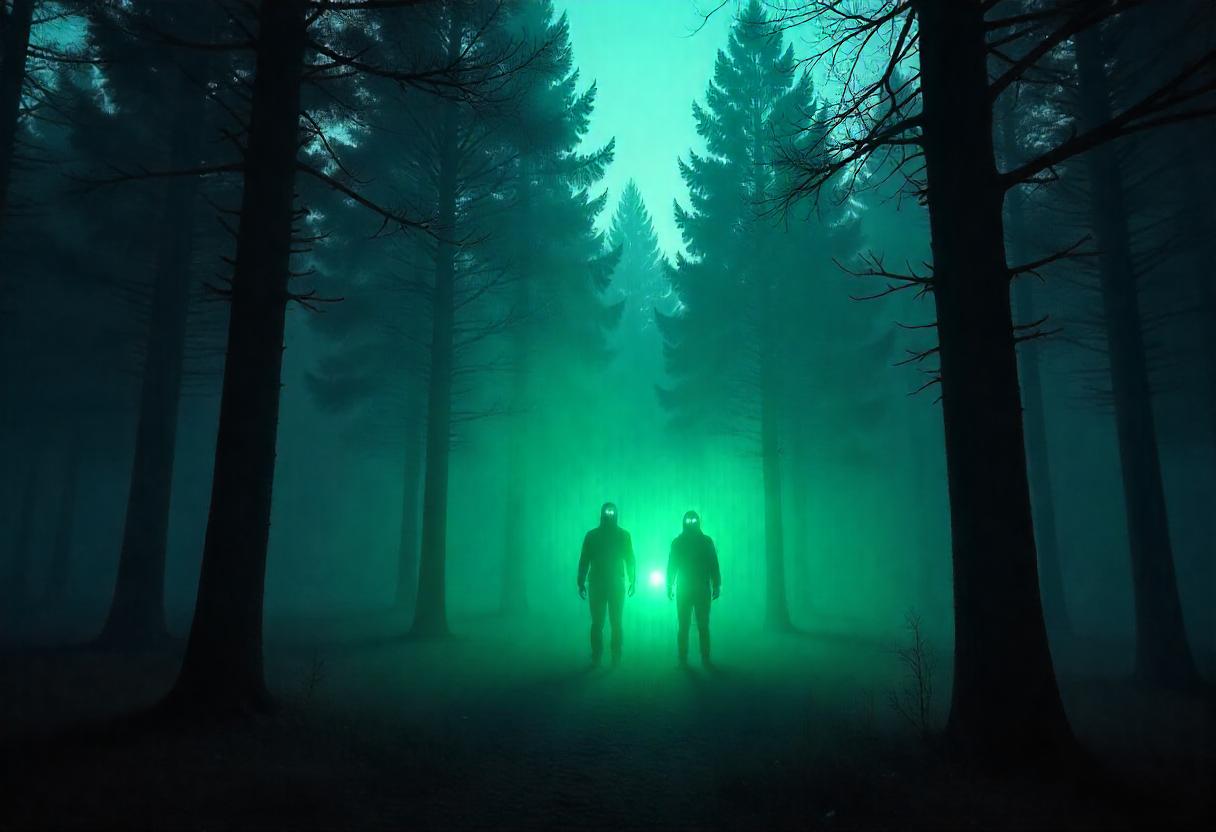
They Speak Without Blinking
At a global summit, political analyst Dana Rowe notices a terrifying pattern among world leaders: they never blink. As she investigates, a mysterious device and a haunting message from her missing sister lead her to the truth—aliens aren’t invading... they’ve already blended in.
Three minutes into the Chancellor’s speech, Dana realized he hadn’t blinked once.
Not when he mentioned the peace treaty, not when he smiled, and certainly not when he promised “unified thought for all human minds.”
Dana had seen that look before—two years ago, the night her sister vanished from a climate summit in Brussels. Casey was a security advisor and had texted her one sentence that never made sense: “The ones in charge aren’t from here—and they’re learning fast.”
Now Dana was back in Brussels, covering the same summit as a political analyst for a multinational watchdog group. She wasn’t supposed to be here—not since she was flagged for “ideological inconsistency” last fall. But an encrypted tip led her back: a folder left in her hotel room with no name, only a photo of the Chancellor’s eye—unnaturally dark, with a strange reflective pattern, like fractured glass.
In the press box, Dana took notes, but her mind raced. The Chancellor’s phrasing was too perfect. His body moved like it had studied gestures in a mirror—each nod, each pause calibrated. When he made a joke about Earth’s “limited organic resource management,” no one laughed.
Except one man, sitting two rows below her. Late fifties, balding, stiff. He clapped out of sync, like he had to remind himself how. When he glanced back at her, she looked away—but not before seeing the same reflection in his eyes.
She clutched the pendant around her neck—a silver coin-sized disc that used to belong to Casey. A childhood keepsake. But lately, it vibrated near certain people. Today, it had buzzed three times.
After the speech, she slipped into a maintenance hallway. The disc vibrated again—sharp, almost painful. She ducked into a side office.
A man was already there. He didn’t flinch when she entered.
“You’re Dana Rowe,” he said. Not a question.
“Do I know you?” she asked.
“No. But your sister told us you might come back.”
Dana’s breath caught. “You knew Casey?”
He reached into his coat and pulled out a device—a black square no bigger than a matchbox.
“She didn’t disappear,” he said. “She embedded. And she was right—they’re mimicking us faster than we expected. Language. Emotion. Appearance. They’re testing how much control they need to maintain before open consolidation.”
Dana looked at the object. “What is that?”
“A recorder,” he said. “It shows them as they are. Once.”
Dana hesitated. “Why haven’t you exposed them?”
He gave a tired smile. “People see what they’re told to see. Most wouldn’t believe a thing unless it blinked red on a screen or told them to panic. But if you record what’s real, just once… maybe that’s enough.”
The pendant buzzed again. Someone was approaching.
He pressed the device into her hand. “Go.”
She slipped through the back corridor and emerged into daylight. The Chancellor was giving interviews on the plaza steps. Cameras flashed. People clapped. His smile didn’t move.
She raised the device. A faint pulse flickered blue.
His face shimmered—for a second—then stabilized.
Dana lowered the recorder. No one else seemed to notice.
She looked at the coin around her neck, now warm against her skin. Then back at the Chancellor’s face.
She didn’t leave.
She pressed record.
Not when he mentioned the peace treaty, not when he smiled, and certainly not when he promised “unified thought for all human minds.”
Dana had seen that look before—two years ago, the night her sister vanished from a climate summit in Brussels. Casey was a security advisor and had texted her one sentence that never made sense: “The ones in charge aren’t from here—and they’re learning fast.”
Now Dana was back in Brussels, covering the same summit as a political analyst for a multinational watchdog group. She wasn’t supposed to be here—not since she was flagged for “ideological inconsistency” last fall. But an encrypted tip led her back: a folder left in her hotel room with no name, only a photo of the Chancellor’s eye—unnaturally dark, with a strange reflective pattern, like fractured glass.
In the press box, Dana took notes, but her mind raced. The Chancellor’s phrasing was too perfect. His body moved like it had studied gestures in a mirror—each nod, each pause calibrated. When he made a joke about Earth’s “limited organic resource management,” no one laughed.
Except one man, sitting two rows below her. Late fifties, balding, stiff. He clapped out of sync, like he had to remind himself how. When he glanced back at her, she looked away—but not before seeing the same reflection in his eyes.
She clutched the pendant around her neck—a silver coin-sized disc that used to belong to Casey. A childhood keepsake. But lately, it vibrated near certain people. Today, it had buzzed three times.
After the speech, she slipped into a maintenance hallway. The disc vibrated again—sharp, almost painful. She ducked into a side office.
A man was already there. He didn’t flinch when she entered.
“You’re Dana Rowe,” he said. Not a question.
“Do I know you?” she asked.
“No. But your sister told us you might come back.”
Dana’s breath caught. “You knew Casey?”
He reached into his coat and pulled out a device—a black square no bigger than a matchbox.
“She didn’t disappear,” he said. “She embedded. And she was right—they’re mimicking us faster than we expected. Language. Emotion. Appearance. They’re testing how much control they need to maintain before open consolidation.”
Dana looked at the object. “What is that?”
“A recorder,” he said. “It shows them as they are. Once.”
Dana hesitated. “Why haven’t you exposed them?”
He gave a tired smile. “People see what they’re told to see. Most wouldn’t believe a thing unless it blinked red on a screen or told them to panic. But if you record what’s real, just once… maybe that’s enough.”
The pendant buzzed again. Someone was approaching.
He pressed the device into her hand. “Go.”
She slipped through the back corridor and emerged into daylight. The Chancellor was giving interviews on the plaza steps. Cameras flashed. People clapped. His smile didn’t move.
She raised the device. A faint pulse flickered blue.
His face shimmered—for a second—then stabilized.
Dana lowered the recorder. No one else seemed to notice.
She looked at the coin around her neck, now warm against her skin. Then back at the Chancellor’s face.
She didn’t leave.
She pressed record.



Comments